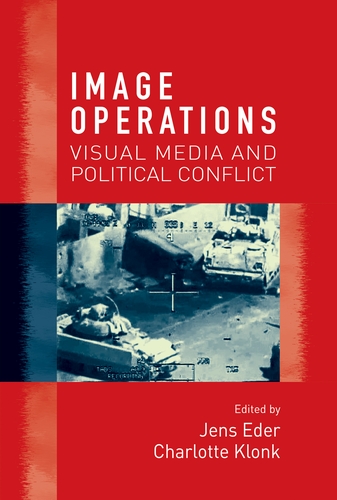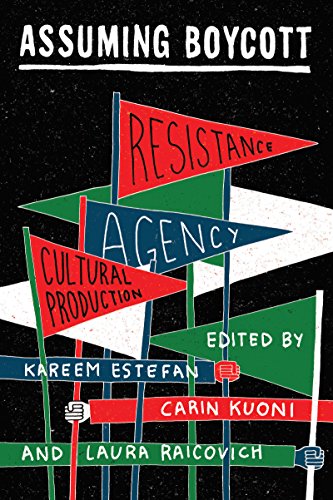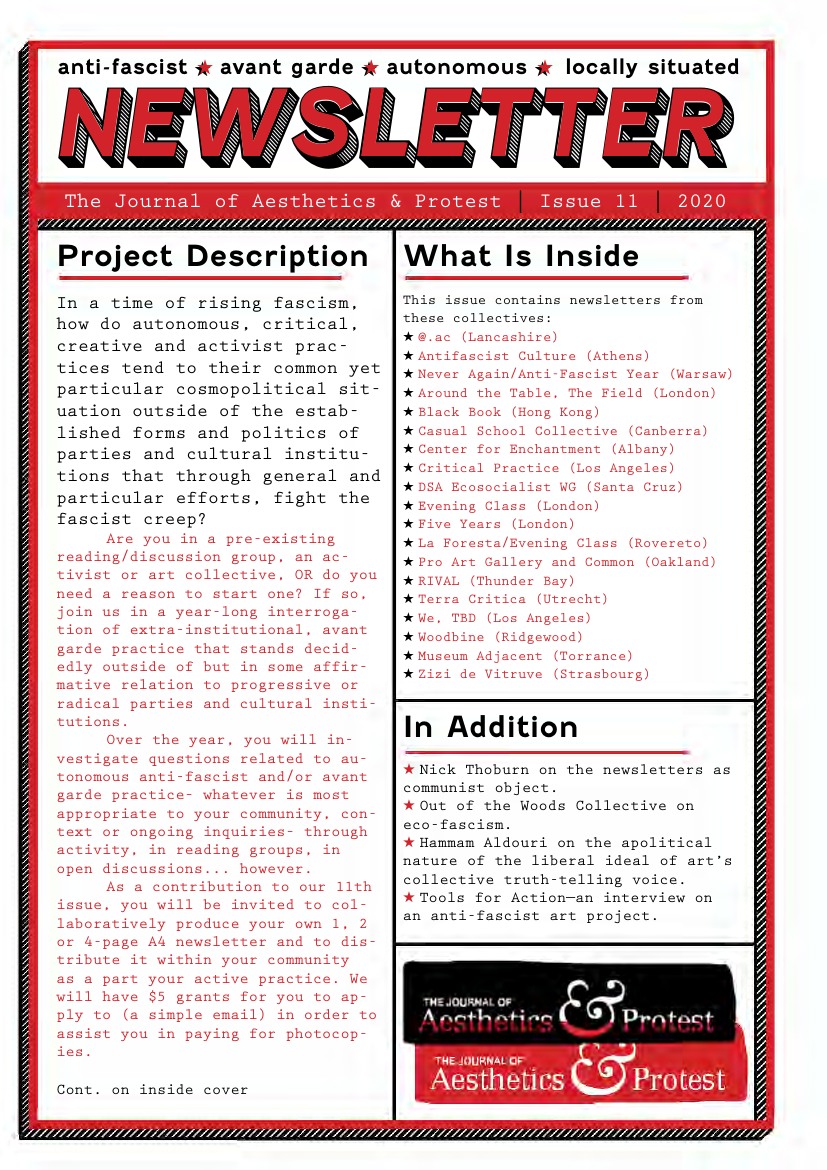Jens Eder, Charlotte Klonk (eds.): Image Operations: Visual Media and Political Conflict (2016)
Filed under book | Tags: · activism, image, media activism, photography, politics, social movements, video, visual culture, war

“Still and moving images are crucial factors in contemporary political conflicts. They not only have representational, expressive or illustrative functions, but also augment and create significant events. Beyond altering states of mind, they affect bodies and often life or death is at stake. Various forms of image operations are currently performed in the contexts of war, insurgency and activism. Photographs, videos, interactive simulations and other kinds of images steer drones to their targets, train soldiers, terrorise the public, celebrate protest icons, uncover injustices, or call for help. They are often parts of complex agential networks and move across different media and cultural environments. This book is a pioneering interdisciplinary study of the role and function of images in political life. Balancing theoretical reflections with in-depth case studies, it brings together renowned scholars and activists from different fields to offer a multifaceted critical perspective on a crucial aspect of contemporary visual culture.”
Publisher Manchester University Press, Manchester, 2016
ISBN 9781526107213, 152610721X
xv+232+[24] pages
Review: Zoya Brumberg (Journal of Visual Culture, 2018).
PDF (21 MB)
Comment (0)Kareem Estefan, Carin Kuoni, Laura Raicovich (eds.): Assuming Boycott: Resistance, Agency, and Cultural Production (2017)
Filed under book | Tags: · activism, agency, apartheid, art, cultural production, cultural resistance, israel, palestine, politics, protest, resistance, south africa

“Boycott and divestment are essential tools for activists around the globe. Today’s organizers target museums, universities, corporations, and governments to curtail unethical sources of profit, discriminatory practices, or human rights violations. They leverage cultural production – and challenge its institutional supports – helping transform situations in the name of social justice.
The refusal to participate in an oppressive system has long been one of the most powerful weapons in the organizer’s arsenal. Since the days of the 19th century Irish land wars, when Irish tenant farmers defied the actions of Captain Charles Boycott and English landlords, “boycott” has been a method that’s shown its effectiveness time and again. In the 20th century, it notably played central roles in the liberation of India and South Africa and the struggle for civil rights in the U.S.: the 1955 Montgomery bus boycott is generally seen as a turning point in the movement against segregation.
Assuming Boycott is the essential reader for today’s creative leaders and cultural practitioners, including original contributions by artists, scholars, activists, critics, curators and writers who examine the historical precedent of South Africa; the current cultural boycott of Israel; freedom of speech and self-censorship; and long-distance activism. Far from withdrawal or cynicism, boycott emerges as a productive tool of creative and productive engagement.
Including essays by Nasser Abourahme, Ariella Azoulay, Tania Bruguera, Noura Erakat, Kareem Estefan, Mariam Ghani with Haig Aivazian, Nathan Gray and Ahmet Öğüt, Chelsea Haines, Sean Jacobs, Yazan Khalili, Carin Kuoni and Laura Raicovich, Svetlana Mintcheva, Naeem Mohaiemen, Hlonipha Mokoena, John Peffer, Joshua Simon, Ann Laura Stoler, Radhika Subramaniam, Eyal Weizman and Kareem Estefan, and Frank B. Wilderson III.”
Publisher OR Books, New York, 2017
ISBN 9781944869434, 1944869433
276 pages
Reviews: Rebecca Wolff (H-AMCA, 2018), Kim Jensen (Mondoweiss, 2017), Marguerite Dabaie (Electronic Intifada, 2017), Robert Bryan (Tribes, 2017).
Series of seminars (Vera List Center, 2015, with videos)
Book launch (New School, 2017, with video)
Journal of Aesthetics & Protest, 11: Newsletter (2020)
Filed under magazine | Tags: · activism, anti-fascism, art, autonomy, avant-garde, ecology, internationalism, politics

“Corona, Fascism, Climate Break-Down. Headlines all, and very real crises felt everywhere– things whose concerns work over situations at every scale of possible experience. We are interested in many things in regard to them, including how their nasty effects demand that we put our home affairs in order. Capacities for solidarity, meaningful mutual aid and actual justice emerge from the most intimate of places – that is, from between people and between people and other meaningful things.
This issue’s aim was to facilitate such work in intimate places; to do so, this issue serves primarily as a compilation of autonomously produced and locally distributed newsletters aimed at situating non-fascist thought and/or avant-garde cultural activity. We begin working on it in late 2018 and are completing it in June 2020.” (from Editorial)
Contributors: Hammam Aldouri, Out of the Woods, Nick Thoburn, Tools for Action, @.ac (Lancashire), Antifascist Culture (Athens), Never Again/Anti-Fascist Year (Warsaw), Around the Table, The Field (London), Black Book (Hong Kong), Casual School Collective (Canberra), Center for Enchantment (Albany), Critical Practice (Los Angeles), DSA Ecosocialist WG (Santa Cruz), Evening Class (London), Five Years (London), La Foresta/Evening Class (Rovereto), Pro Art Gallery and Common (Oakland), RIVAL (Thunder Bay), Terra Critica (Utrecht), We, TBD (Los Angeles), Woodbine (Ridgewood), Museum Adjacent (Torrance), Zizi de Vitruve (Strasbourg).
Editors: Marc Herbst, Robby Herbst, Amber Hickey, Claudia Firth
Publisher JOAAP, Leipzig / Los Angeles / London / Berlin / Waterville, ME, Jul 2020
99 pages

